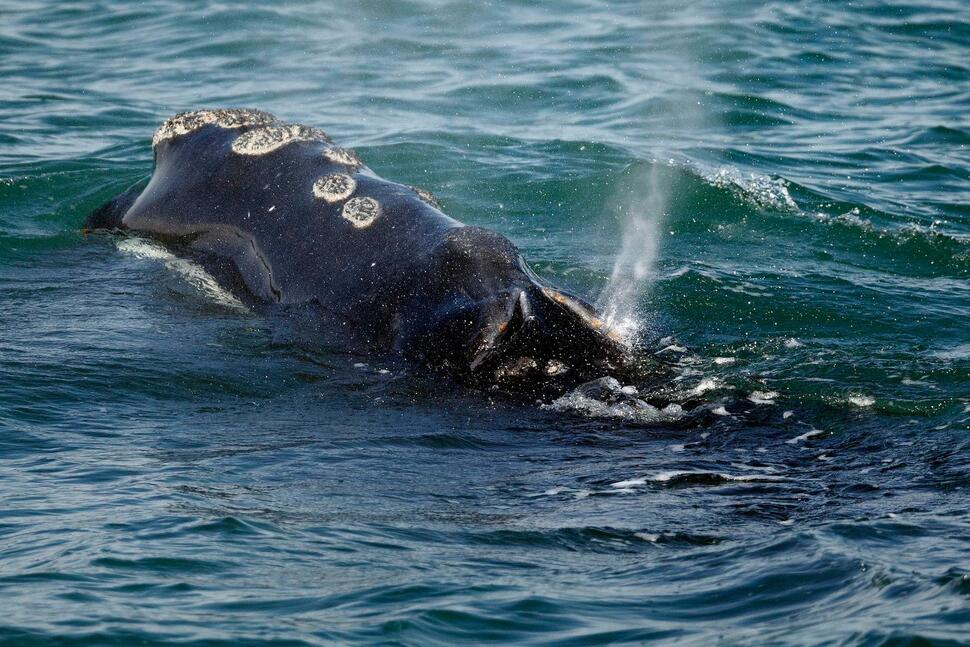Scientists who study a critically endangered species of whale that lives off New England say encouraging early signs suggest the animals could have a strong season for feeding and breeding
Scientists monitoring the critically endangered North Atlantic right whale are seeing promising signs that could indicate a strong feeding and breeding season this year.
This rare species, with an estimated population of only 370, migrates annually to Cape Cod Bay, Massachusetts, arriving in early winter and staying until mid-May. On November 18, researchers from the Center for Coastal Studies in Provincetown observed the first two right whales of the season feeding near the water’s surface—a behavior typically seen later in the season.
The whales were consuming microscopic crustaceans, including Calanus finmarchicus, an oil-rich species vital to their health, according to Christy Hudak, a researcher with the center.
“While Calanus wasn’t the dominant species in the samples, its presence in higher numbers this early is unusual,” Hudak said. “It’ll be exciting to see if this abundance of food makes for a standout season for right whales in Cape Cod Bay.”
This plentiful food supply is the second encouraging development for the species in recent weeks. In October, researchers reported a 4% population increase between 2020 and 2023, following a 25% decline from 2010 to 2020. Despite this improvement, conservationists stress the urgency of protective measures, particularly as fewer than 70 reproductively active females remain.
The Clearwater Marine Aquarium emphasized that this critically low number “further highlights the urgent need for conservation efforts.”
The whales face ongoing threats, including entanglement in fishing gear, ship collisions, and habitat shifts caused by ocean warming, which can lead them into unprotected zones in search of food.
Once abundant off New England, right whale populations were devastated by commercial whaling. Conservationists hope that the combination of abundant food and increased population marks a turning point, but they caution that the species still teeters on the brink of extinction.
